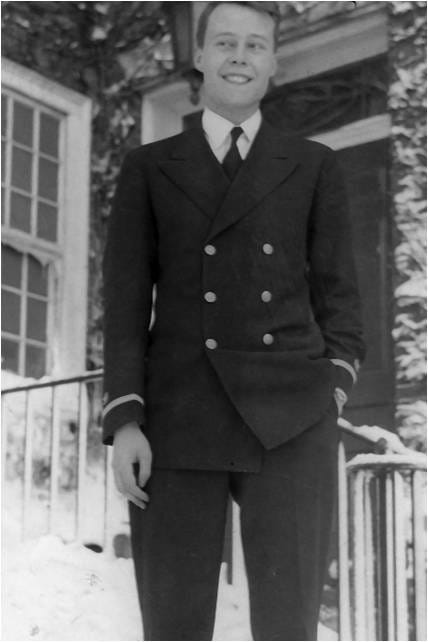Where Happiness Comes From
Not long ago, many childhoods saw tragedy and pain. Were their lives ruined?
To what extent did your childhood dictate the happiness you felt later in life?
Father’s Day put me in a reflective mood.
I recently found a two-page childhood memoir by my grandfather, written at the end of his long life.
In it he tells how he learned his father died.
The week it happened, in 1930, his father had stayed up with him, teaching him pronunciation.
The next day, at his two-room school (with an outhouse), the teacher said, "You read as well as the A readers," and promoted him.
The night his father died, my grandfather, then 6 years old, heard a phone ring in the dark. There was "scurrying." He went back to sleep.
The next morning his aunt greeted him. (His mother was off dealing with the remains.) Tearful, she fed him porridge and sent him to school.
She didn't tell him what had happened. He was the eldest of three.
As he was walking the two blocks to school, a little girl ran up.
"Your father died in a car accident last night," she said. "My mother heard it in the morning news."
Here the memoir says only this of his pain: "I remember it was a sunny fall day."
His mother was 26, now a widow with three small children.
She lived a hard life, he wrote. He said he prayed for her every night, into his 80s.
Behind every good father—which he was—is a good wife or mother.
The rest of his brief memoir is full of accidents and troubles that are remembered without pain.
There's the little neighbor girl who liked to be driven "fast" (20mph) in her father's 1924 Chevrolet. She died soon after in a house fire.
There's his brother, who suffered scarlet fever and had his leg crushed at age 2.
His father had lost two siblings. His grandmother was also widowed young.
In his era, death and sickness were companions of life. Family and friends came together to salve the pain.
Recognition of the fragility of life did not diminish the sweetness of it.
The last line of his memoir:
”Since I lost my dear father, it was compensated many times over by having my sweet little wife."
A few weeks ago, I took my boys to their grandfather's gravesite to meet him.
Rest in peace.
Worth a Watch
On the subject of pain, memory, and survival—in recent weeks I came across this interview with Elie Wiesel, the Nobel Peace Prize winner and Auschwitz survivor. His reflection on writing, sympathy, and history as a sacred trust is moving.
"I would like the faces that I have seen, the fires that I have watched from a very near distance, should not be extinguished,” he says. “Neither the faces, nor the fires."
Wiesel watched his father die in Auschwitz, and lost his whole family in the Holocaust.
That he could summon the resources to write, to keep his memories of them alive without sinking into despair, is a testament to his strength.
What I’m Working On
In the coming days, I’ll be announcing something exciting and new. I’ll be a partner and teacher in a program that will run in July. Stay tuned for more on that front. My new course is a portion of what I’ll be covering there. But there’s more to come. Looking forward to sharing more details soon.
Until the next time,
Ben
PS - Thanks to the new paid subscribers. There are getting to be a number of you, and though I have said all along I intend to keep all regular content free, I am looking into whether there’s something I can do just for you, soon.





Beautiful words Benjamin